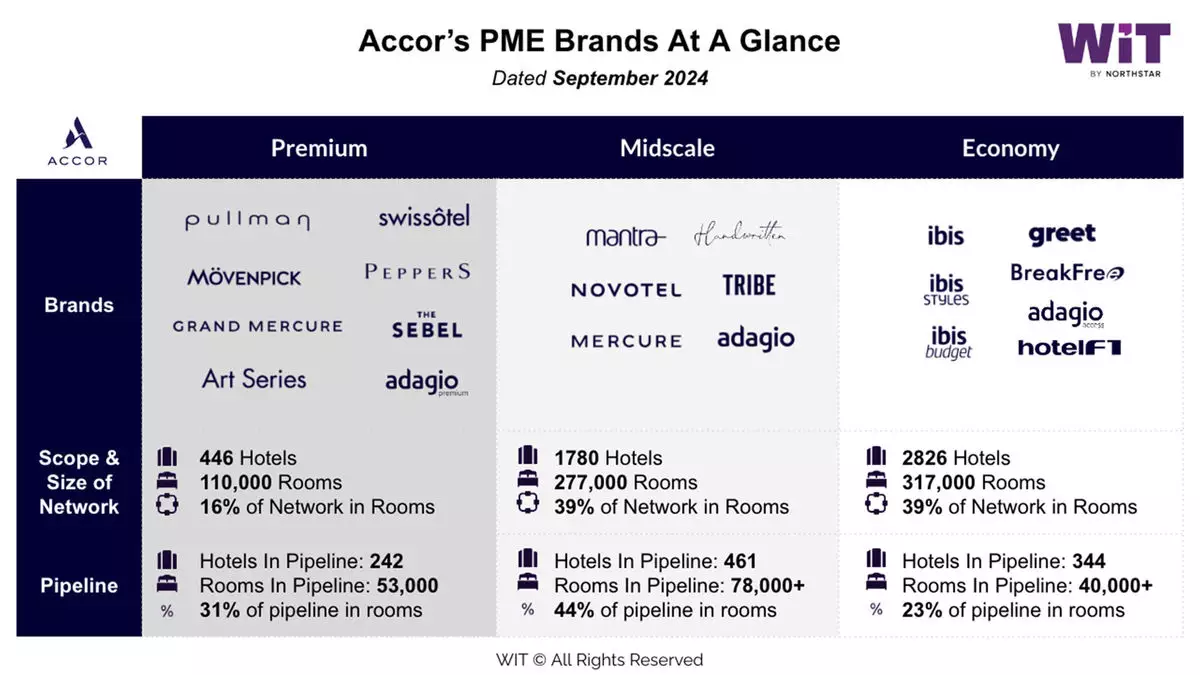In the evolving landscape of the hospitality industry, two figures stand out: Benoit Racle and Jean-Yves Minet, global brand presidents at Accor. Their recent meeting at Movenpick BDMS Wellness Resort in Bangkok brought forth not only a discussion about strategy but also a refreshing perspective on how the industry must adapt to meet the contemporary traveler’s needs. Traversing the intricate web of 21 brands that dominate Accor’s portfolio, Racle and Minet embody the shift towards a consumer-centric model, focusing deeply on health and environmental consciousness.
What makes this narrative particularly compelling is the personal lifestyle choices that shape their vision. Racle, who boasts an extensive background in hospitality, particularly with W Hotels, prioritizes health and fitness, opting for decaffeinated beverages and abstaining from alcohol for nearly a decade. Such choices resonate well with today’s travelers, who increasingly seek wellness experiences that don’t compromise their health standards — a growing trend underscored by the current wellness paradigm.
The global wellness market is not just a passing trend; it is a burgeoning industry estimated to be worth $1.8 trillion, according to McKinsey & Co. The statistics are staggering — in the U.S. alone, the wellness market has reached $480 billion, demonstrating a consistent growth rate of 5% to 10% annually. As travel preferences shift, an astounding 82% of Americans emphasize wellness as a crucial element in their everyday lives. This remarkably high interest parallels findings from the UK and China, demonstrating that the demand for wellness spans various demographics and regions.
Executives like Racle and Minet are acutely aware of this shift. They understand that accommodating evolving consumer expectations means not only enhancing the guest experience but also embedding ideals of wellness in every touchpoint of the stay. From spas to nutritious dining options, guests are no longer satisfied with simple amenities; they want holistic experiences that promote well-being while traveling.
In a striking reflection of societal changes, Racle mentions that only 11% of young people in the United States engage in smoking habits. This drop, coupled with a noticeable decline in alcohol consumption, signifies a pivotal shift in social habits. New establishments, like alcohol-free bars in urban centers such as New York, indicate a robust demand for social environments that offer alternatives to traditional leisure practices.
For the hospitality industry, this necessitates a reevaluation of how atmospheres are constructed within hotels and resorts. It’s crucial to create welcoming spaces where guests can indulge in social interactions without the conventional reliance on alcoholic beverages. In essence, the challenge rests on innovation and the reinvention of brand experiences that cater to this demographic’s preferences for health-conscious and alcohol-free environments.
Minet highlighted a critical megatrend: environmental awareness is rapidly becoming a pivotal factor shaping consumer behavior, even in emerging markets. His experiences in Asia and Africa reveal a surprising robustness among the emerging middle class as they prioritize sustainability. Countries like India exemplify this cultural shift — as their middle classes evolve, so too does their commitment to environmental stewardship and responsible consumerism.
Racle and Minet elucidate that modern consumers are more inclined to support brands that reflect their values, particularly when it comes to sustainability. This sentiment is not localized; it permeates various global markets, pushing brands to align themselves with ecological concerns. Brands that are perceived as environmentally conscious gain a competitive edge, not just in market share but also in loyalty among their clientele.
As Racle and Minet continue to navigate the complexities of the hospitality industry, their insights emphasize a significant truth: the future of travel hinges upon wellness and sustainability. Their holistic approach to redefining guest experiences anticipates a landscape where not only individual health but also collective environmental welfare become paramount.
For hospitality brands, adapting to these emergent trends is not merely an option; it’s an imperative. As consumers continue to demand experiences that align with their values, those brands embracing innovation in wellness and sustainability will thrive, ultimately redefining what it truly means to travel in the modern age.


Napsat komentář